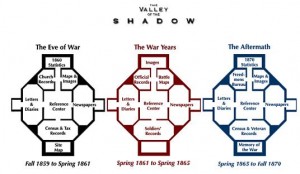
Though previously mentioned in another post, the The Valley of the Shadow Project has a wide range of primary sources from newspapers, maps, letters, and statistics all available for use in the 7-12 classroom. Broken up chronologically into three periods, the Project archives two communities (Augusta County, Virginia and Franklin County, Pennsylvania) between the years of 1859 and 1870. A particularly good lesson plan by Alice Carter compares the impact and the development of the railroads in both counties using various articles from historical newspapers. The lesson provides a teacher with preselected articles, however, one may choose to either find newspaper accounts that reflect individual class interests or allow students to search for their own, using the newspaper indexes. One special note: teachers could extend the lesson and explore the impact of railroads during reconstruction.
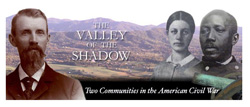
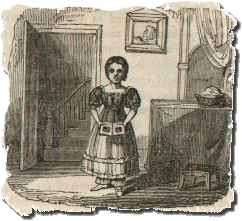 Understanding family life in the 19th century necessitates a look at what was popular with children at the time.
Understanding family life in the 19th century necessitates a look at what was popular with children at the time. 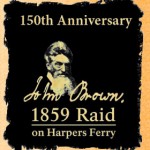 A number of organizations in West Virginia, Pennsylvania, Virginia and Maryland have organized events for the sesquicentennial anniversary of John Brown’s raid on Harpers Ferry. These include the
A number of organizations in West Virginia, Pennsylvania, Virginia and Maryland have organized events for the sesquicentennial anniversary of John Brown’s raid on Harpers Ferry. These include the 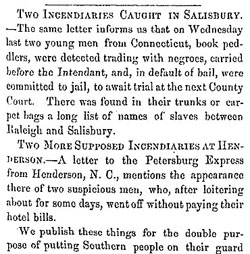 The South’s reaction to John Brown’s attack is often characterized as a violent one. “The shock and fear John Brown had instigated fueled widespread panic…[that] fed into paranoia vented in aggressive acts,” as historian David Reynolds explains. Yet not all southerners accepted violent actions. Protecting their communities remained a high priority, but these southerners argued that extralegal means should not be employed. Not only were existing laws more than sufficient, but violent actions impugned southern honor. Someone who “was tarred and feathered” “for sympathsing [sic] with old Brown” may have “richly deserved his punishment,” but the
The South’s reaction to John Brown’s attack is often characterized as a violent one. “The shock and fear John Brown had instigated fueled widespread panic…[that] fed into paranoia vented in aggressive acts,” as historian David Reynolds explains. Yet not all southerners accepted violent actions. Protecting their communities remained a high priority, but these southerners argued that extralegal means should not be employed. Not only were existing laws more than sufficient, but violent actions impugned southern honor. Someone who “was tarred and feathered” “for sympathsing [sic] with old Brown” may have “richly deserved his punishment,” but the 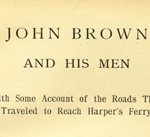 “
“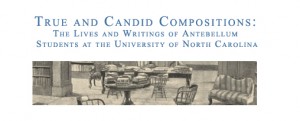 “True and Candid Compositions: The Lives and Writings of Antebellum Students at the University of North Carolina” is an interesting
“True and Candid Compositions: The Lives and Writings of Antebellum Students at the University of North Carolina” is an interesting  The Civil War Museum of Philadelphia, which remains closed as it plans for moving into a new building, has
The Civil War Museum of Philadelphia, which remains closed as it plans for moving into a new building, has 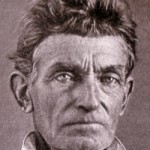 The Smithsonian recently published “
The Smithsonian recently published “






